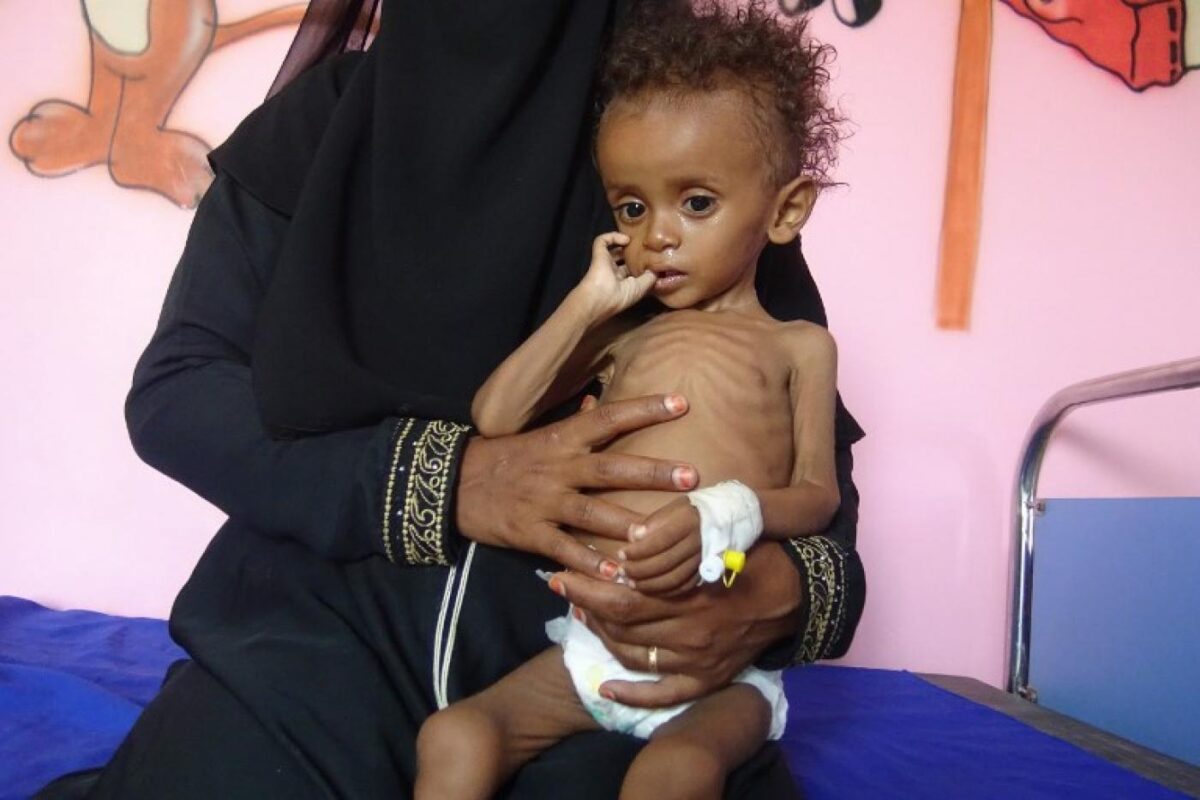The WHO has warned that 75 percent of Yemeni children suffer from acute malnutrition.
In a post on its Twitter account on Monday, the UN agency responsible for international public health warned that three out of four children in Yemen are “chronically malnourished.”
It also estimated that 16.2 million Yemenis – more than half of the country’s population of 30 million – are food insecure.
Acute malnutrition is responsible for almost one-third of all deaths in children under five years of age. It damages a child’s physical development and causes intellectual or cognitive impairment among those who survive. Malnutrition is largely irreversible, perpetuating illness, poverty, and inequality.
Back in February, four UN agencies, including the WHO, warned that acute malnutrition and severe acute malnutrition have increased by 16 and 22 percent, respectively, among Yemeni children under five years of age from 2020.
The figures are among the highest levels of malnutrition recorded in the country since the Saudi war began in 2015, they added.
“The increasing number of children going hungry in Yemen should shock us all into action,” said UNICEF Executive Director Henrietta Fore at the time.
“More children will die with every day that passes without action. Humanitarian organizations need urgent predictable resources and unhindered access to communities on the ground to be able to save lives,” Fore had noted.
Today, Yemen is one of the most dangerous places in the world for children to grow up, with high rates of communicable diseases, limited access to health services, and inadequate sanitation and hygiene systems.
Last month, the UN Security Council voiced “grave concern for the dire humanitarian situation [in Yemen], including prolonged starvation and the growing risk of large-scale famine, which is compounded by the dire economic situation.”
Saudi Arabia, supported by its regional and Western allies, launched the devastating military aggression against its southern neighbor in March 2015 in collaboration with a number of its allied states and with arms and logistics support from the US and several Western states.
The aim was to return to power the former Riyadh-backed regime and crush the popular Ansarullah movement which has been running state affairs in the absence of an effective government in Yemen.
The war has stopped well shy of all of its goals, despite killing tens of thousands of Yemenis and turning entire Yemen into the scene of the world’s worst humanitarian crisis.
Meanwhile, Yemeni forces have in recent months gone from strength to strength against the Saudi-led invaders and left Riyadh and its allies bogged down in Yemen.
Throughout the course of the war, the United States has supported and armed Saudi Arabia. The Ansarullah movement, which runs the Sana’a government, frequently refers to the war as the “US-Saudi aggression” to underscore Washington’s leading role in the war.
Despite his February promise to end “all American support for offensive operations in the war in Yemen, including relevant arms sales,” US President Joe Biden has recently approved $650 million worth of weapons purchases to Saudi Arabia.
